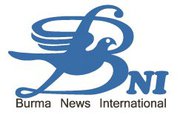No security for Rohingya ethnic human rights defenders in Thailand

The Thai authorities arbitrarily detained, intimidated, and monitored the movements of some ethnic Rohingya community leaders and human rights defenders from Myanmar who lawfully reside in Thailand, involved in the event - a question-and-answer session from taking place at a Rohingya-focused civil-society-led press conference in Bangkok on June 23, according to Fortify Rights press statement issued on June 28.
On the morning of June 23, Thai Military Intelligence officers arbitrarily detained Mr. Haji Ismail, a Rohingya community leader or Rohingya ethnic human rights defender who was scheduled to speak at the Rohingya-focused press conference. The officers transported him to the press conference, monitored his discussions with journalists at the event, and escorted him back to his residence. The authorities continuously monitored Mr. Ismail from June 23 to 26 - during Myanmar State Counsellor Aung San Suu Kyi’s visit to Thailand June 23 to 25, Thai authorities arbitrarily detained, intimidated, and monitored the movements of several Rohingya community leaders from Myanmar who lawfully reside in Thailand. Some continue to be monitored, the statement stated.
“I cannot speak now,” said Hajee Ismail, secretary general of the Rohingya Thailand Group, putting his fingers over his lips at the conference. “This is a big problem.”
Talking with reporters at FCCT, Bangkok Maung Kyaw Nu, president of the Burmese Rohingya Association, walked through the crowd with a napkin taped over his mouth and said “We cannot get anything from her [Suu Kyi] because she is also violating the human rights [of the Rohingya].”
Moreover, Thai police also detained at a police station another Rohingya community leader and human rights defender—whose name is withheld here for security reasons—for the entire day on June 23 and instructed him to report to another police station the following day, the report said.
Fortify Rights accompanied him (as per his request) to the police station on June 24, where five plain-clothed police officers questioned him and threatened to deport him to Myanmar. But, still he is not in detention, the report more said.
Other Rohingya human rights defenders also reported being monitored by Thai authorities beginning June 23 and continuing to date. Some people who identified themselves as intelligence officials called their phones multiple times on a daily basis and questioned them about their whereabouts and activities, according to fortify rights report.
Thailand should protect the rights of ethnic-Rohingya human rights defenders, including the rights to liberty and free expression, and safeguard their legitimate human-rights activities in Thailand, Fortify Rights stated. “Thai authorities also prevented a question-and-answer session from taking place at a Rohingya-focused civil-society-led press conference in Bangkok on June 23.”
The request to limit the discussion at the press conference was in response to Myanmar’s policy toward Rohingya and to ensure cooperative relations with Myanmar, said Thai police and military officials
“Thailand’s strategic interests are best served by protecting the rights of Rohingya human rights defenders, not cracking down on them,” said Amy Smith, Executive Director of Fortify Rights. “Bilateral relationships shouldn’t be based on mutually consistent policies of abuse.”
“More discussion on the situation of Rohingya is needed, not less,” said Amy Smith. “It’s going to be a long road ahead if Thailand and Myanmar won’t tolerate discussions about Rohingya and human rights.”
“The authorities’ recent actions reflect poorly on Thailand’s commitment to uphold human rights and combat human trafficking,” said Amy Smith. “Rohingya human rights defenders working to find solutions for their community should be supported and protected, not harassed and silenced.”
“It’s a sad day when it’s easier to have a discussion about the Rohingya in Yangon than in Bangkok,” Sam Zarifi, the regional director of the International Commission of Jurists.
Thailand has an obligation to protect the rights to freedom of expression and peaceful assembly under Articles 19 and 21 of the International Covenant on Civil and Political Rights (ICCPR), to which Thailand is a state party. Restrictions on these rights are permissible only when provided by law, proportional, and necessary to accomplish a legitimate aim. To justify restrictions on these rights based on national security, international law holds that the state must show a threat against “the existence of the nation or its territorial integrity or political independence.”
The U.N. recognizes “human rights defenders” as “individuals, groups and associations…contributing to…the effective elimination of all violations of human rights and fundamental freedoms of peoples and individuals.” The U.N. Declaration on Human Rights Defenders provides specific protections for human rights defenders in the context of their work, including the rights to peaceful assembly, freedom of expression, and the right to seek, obtain, receive, and hold information relating to human rights.
